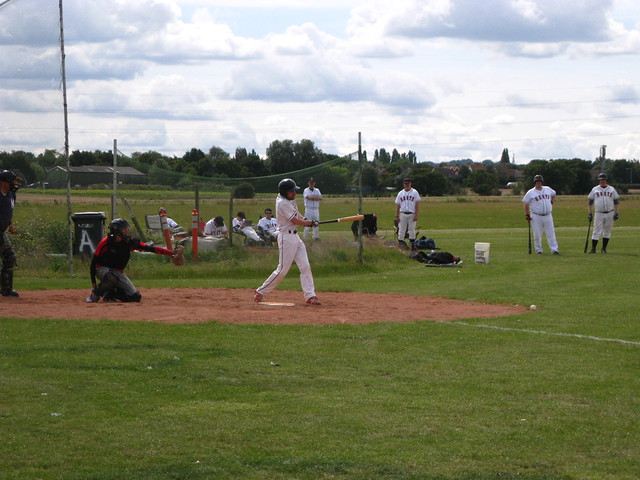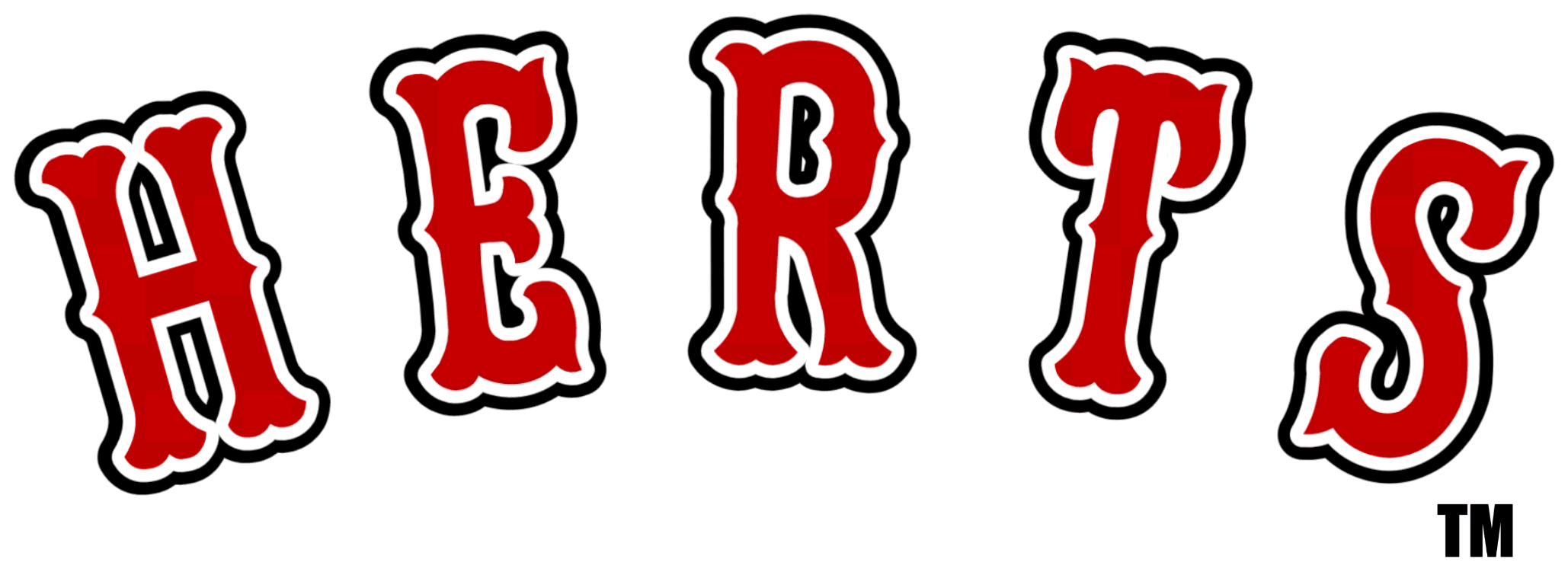
Here’s a moment which sums up how the Brighton game went for me. In the fourth inning, as I jogged in to score easily after a fellow Raptor had smacked an RBI into the outfield, I helpfully scooped up his bat on my way, writes Rob Jones.
In doing so, I performed a quick stutter-step, caught my cleats in my laces, and almost fell on my face. Even scoring a run, I nearly managed to mess it up. And I broke my lace.
It was that sort of day for me, which didn’t really reflect the tremendous performance put in by the team. We narrowly lost 20-18, with the tying and go-ahead runs on base in the ninth inning. There were sterling performances in the field by rookies Paul Barton and Nick Shrimpton, and by newcomer Yue Du on the mound.
But I never quite managed to match their level on this day. There was a lot of “giving with one hand and taking with the other”. A lot of “close but no cigar”. Here’s an example.
Brighton’s number 9 hitter softly put a ground ball my way at second base quite early in the game. I waited on it, played safe and got everything behind it, but promptly managed to boot the ball anyway. I recovered enough to pick it up, but unsurprisingly rushed the throw. It was extremely annoying, particularly as I thought he would have been the last out of the inning, and we could have got out clean.
“You’re just killing yourself”
However — on the very next play the guy tried to take second on a hit and run, and the batter put a ground ball up the middle. I swiped up the ball in my glove and with a tremendously impressive smooth move I reached around and also swiped the passing runner. A moment of satisfaction and relief coursed through me.
But remember how I thought there were two down? I heard some calls to go to 1, but thought “Nah, no need”. And I looked to first where our man was gently wandering off the base as he also thought there were two down. Turns out we were both wrong. There was one down — two now, after my elegant tag — but the inning would continue and I had missed the chance for a highlight reel double play. And that batter would go on to score a run.
Later on, I made some routine plays — a force at second, a pop-up at first, and receiving some throws at first — but I managed to undo my own good work. A sliding grab as I ranged to my right at second base not only didn’t turn into an out at first, but it was worse — as I again rushed the throw it went to the fence and the runner took second. “You’re just killing yourself out there, aren’t you?” noted an observant colleague!
There are some occasions where I honestly can’t remember whether a double play might have been in order. But I don’t believe that this undermines my insistence as a coach that players should know their play. In fact, I think it highlights the point!
When I say that Raptors should always know what they are going to do with the ball, it’s not because I think that’s easy. It’s because it’s hard, really hard. It takes two things which are difficult to develop.
Staying focused is exhausting
First, it takes an instinctive knowledge of the game which perhaps only years of drills can give you, but which we Brits must try to manufacture over a handful of sessions. (for one of my favourite examples of this, type “pujols heads up play” into YouTube and see Albert make a superb decision and take out the lead runner in the 2011 playoffs.)
Secondly, it takes great stamina and mental toughness. Professional baseball games last a good three hours – ours can last five. And staying focused ALL THE TIME is exhausting. That’s why we have to remind ourselves all the time about “what is our play?”
When I took that pop-up at first I told you about I immediately looked to second as a runner was there. He had strayed a little but nobody was on the bag so there was no play against him. On this occasion — when I had finally remembered my own maxim and thought ahead — a team-mate hadn’t. Getting all 9 amateur ball-players focused all the time is probably unrealistic, and that’s why we strive for it.
Let’s transfer this tale of fielding triumphs over to my batting. I entered the game with a .500 average — from an admittedly small sample. But that average has collapsed like the Labour vote in Scotland. A meek groundout was followed by two strikeouts — one of them on three pitches. Finally I got a walk, but my first bat on ball contact saw me pop out to the second baseman when facing a very hittable relief pitcher.
At least on this occasion, I can boast that it ended well. I got to play my part in the final rally by finally — finally — getting a ball in play.
Helpful team-mates pointed out to me as I stepped to the plate that the man who had returned to the mound was the starter who had struck me out twice earlier. And they seemed unconvinced that my checked defensive swing which knocked the ball foul down the first-base line was in any of the coaching manuals.
But — at last — with two strikes against me, I was able to fight it off over the head of the infielders and bring in 2 vital runs. At that point I felt as if I was helping to win the World Series, or take Berlin, or scale the Burj Khalifa — definitely something way in excess of what I had actually achieved!
Really, though, that feeling came down to the team. They had battled against a disciplined, solid- fielding, hard-hitting team for nine innings and until then I felt I had done little to lead them as I am supposed to. I am my own worst critic, but your team-mates are your biggest fans, the ones you want to achieve it for.
And for all of those good moments sprinkled above — for all of those glimpses of how it can go right if you keep working at it — I will be back out again on Sunday.
“Going through the Change” is a series of articles by our former Communications Director, Rob Jones, which began when he “changed” from outfield to infield. It continues as random observations on life as an amateur ball-player.

